All Formats & Editions
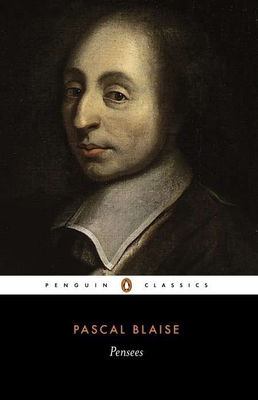
Pensées
Blaise Pascal, the precociously brilliant contemporary of Descartes, was a gifted mathematician and physicist, but it is his unfinished apologia for the Christian religion upon which his reputation now rests. The Pense s is a collection of philosohical fragments, notes...
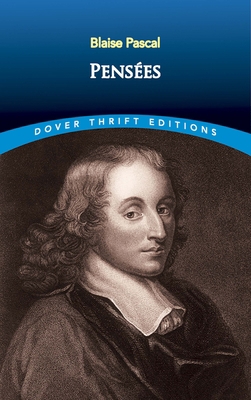
Pensées
"I know of no religious writer more pertinent to our time." -- T. S. Eliot, Introduction to Pens es
"Men despise religion. They hate it and are afraid it may be true," declared Pascal in his Pens es. "The cure for this," he explained, "is first to show that religion...
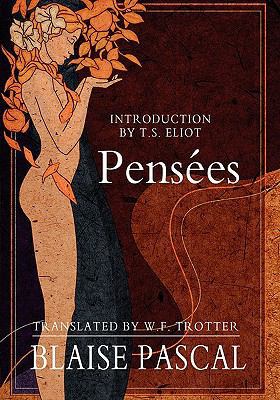
Pensees
For much of his life, Pascal (1623-62) worked on a magnum opus which was never published in the form the philosopher intended. Instead, Pascal left a mass of fragments, some of them meant as notes for the Apologie. These became known as the Pens es, and they occupy a crucial...
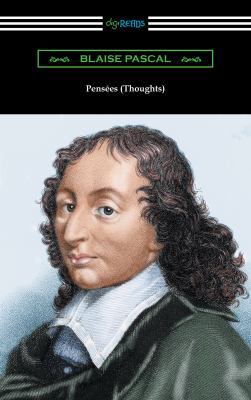
Pensées (Thoughts): [Translated by W. F. Trotte...
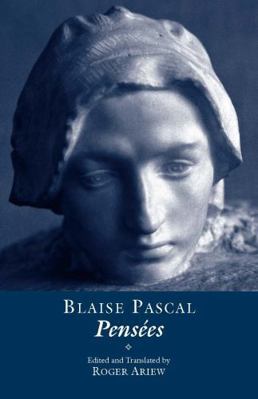
Pensées
This eloquent and philosophically astute translation is the first complete English translation based on the Sellier edition of Pascal's manuscript, widely accepted as the manuscript that is closest to the version Pascal left behind on his death in 1662. A brief history of the...
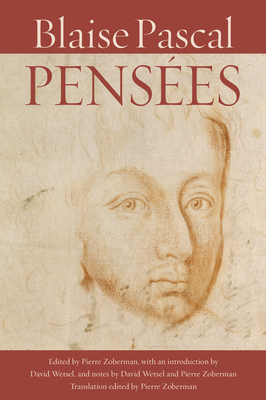
Pensees
Blaise Pascal (1623-1662) was a French mathematician, physicist, and religious philosopher, who laid the foundation for the modern theory of probabilities. The Pens es are made up of some 800 fragments, that have proven to be an enduring masterpiece since their initial publication...
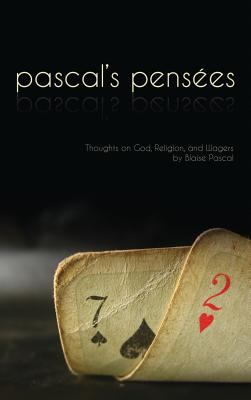
Pensees: Pascal's Thoughts on God, Religion, an...
Blaise Pascal set out to produce a monumental work of Christian apologetics but his untimely death meant that only his fragmentary notes--his thoughts--would be passed on to future generations. The 'random' notes of most people would not be worth preserving; not so with Blaise...
![Pensees [French] 2253160695 Book Cover](https://i.thriftbooks.com/api/imagehandler/l/1DBBE1C14D2BFE443214171904525756ADE91CD7.jpeg)
Pensees [French]
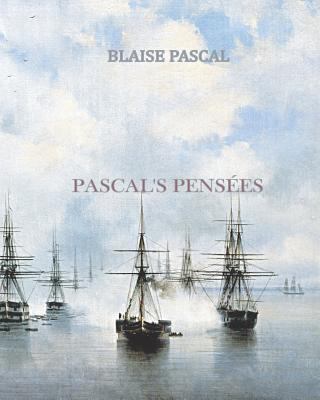
Pascal's Pensees
![Pensees Pascal [French] 2070316254 Book Cover](https://i.thriftbooks.com/api/imagehandler/l/6272507C5B737872F1724C1A60E18F0DE11F7168.jpeg)
Pensees Pascal [French]
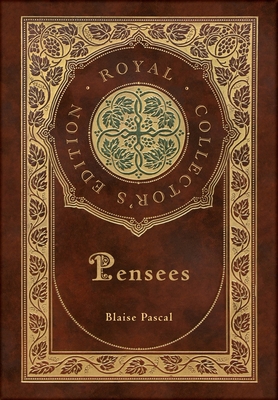
Pensees (Royal Collector's Edition) (Case Lamin...
Pensees, or thoughts, is a collection of fragments on theology and philosophy written by 17th-century philosopher and mathematician Blaise Pascal. Pascal often examined the same event or example through many different lenses. Pascal's religious conversion led him into a life...

Pascal's Pensees
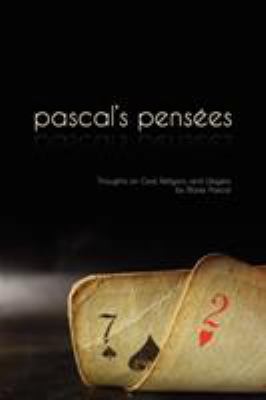
Pensees: Pascal's Thoughts on God, Religion, an...
Blaise Pascal set out to produce a monumental work of Christian apologetics but his untimely death meant that only his fragmentary notes--his thoughts--would be passed on to future generations. The 'random' notes of most people would not be worth preserving; not so with...
![Pensamientos (Spanish Edition) [Spanish] 1539544451 Book Cover](https://i.thriftbooks.com/api/imagehandler/l/D352C67CA4C355D42244370D54012C91B6F03712.jpeg)
Pensamientos (Spanish Edition) [Spanish]
En los Pensamientos est presente la reflexi n de Pascal sobre la condici n humana y las relaciones de la misma con Dios. Aunque su meditaci n no es cient fica, s lo es su constante referencia al modo de pensar. Su m todo y punto de partida es el coraz n, y lo razonable consiste...
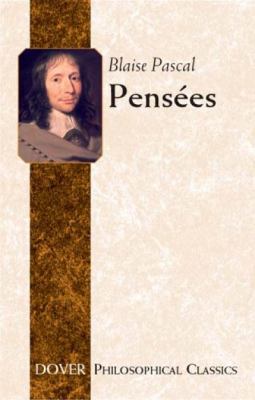
Pensees

Pascal's Thoughts
Those who are accustomed to judge by feeling do not understand the process of reasoning, for they would understand at first sight, and are not used to seek for principles. And others, on the contrary, who are accustomed to reason from principles, do not at all understand matters...

Pascal's Pensees
![Pensées [French] 2081366657 Book Cover](https://i.thriftbooks.com/api/imagehandler/l/DE20028861F547E2B0BA9EE45E84DB54C30410BF.jpeg)
Pensées [French]

The Thoughts of Blaise Pascal
Blaise Pascal, 19 June 1623 - 19 August 1662), was a French mathematician, physicist, inventor, writer and Catholic philosopher. He was a child prodigy who was educated by his father, a tax collector in Rouen. Pascal's earliest work was in the natural and applied sciences where...

Pensees (Penguin Classics) by Pascal, Blaise (1...
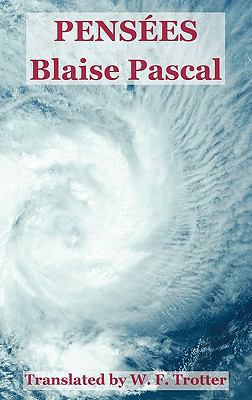
Pensees
![Pensamientos (Pensées) (Spanish Edition) [Spanish] 1541039904 Book Cover](https://i.thriftbooks.com/api/imagehandler/l/390BD415B418CFB0EFB387C3781D5820A156428D.jpeg)
Pensamientos (Pensées) (Spanish Edition) [Spanish]
Los Pens es (literalmente, "pensamientos") fue una defensa de la religi n cristiana escrita por Blaise Pascal, el renombrado fil sofo y matem tico del siglo XVII. La conversi n religiosa de Pascal lo condujo a una vida de asceta, y los Pens es fueron de varias maneras la obra...

Pensees
"The heart has its reasons which reason knows not." Blaise Pascal (1623 - 1662) was a French mathematician, physicist, and philosopher who made significant contributions to various fields of science and mathematics.
![Pensées (French Edition) [French] 9361903276 Book Cover](https://i.thriftbooks.com/api/imagehandler/l/F6520C38F1C9E0F964918AC57B8CE69CD009527C.jpeg)
Pensées (French Edition) [French]
Chef-d'oeuvre intemporel de la philosophie et de la th ologie, Pens es de Blaise Pascal est une collection de r flexions puissantes sur la foi, la raison, et la condition humaine. Initialement con u comme une d fense du christianisme, cet ouvrage explore avec profondeur les...












